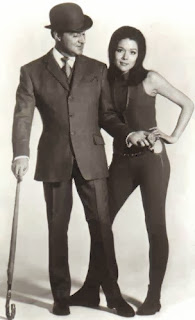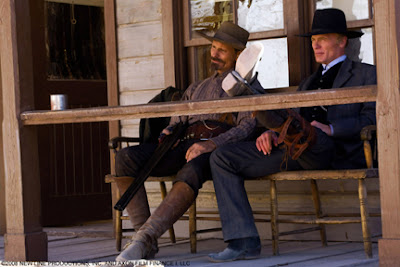 |
| Steed and Peel |
Joe Bunting has a good
article on literary foils at The Write Practice. Captain Kirk and Mr.
Spock, John Steed and Emma Peel, The Lone Ranger and Tonto, Homes and Dr.
Watson, Martin Riggs and Roger Murtaugh, Cole and Hitch, among many others. I’m
inclined to favor a good buddy story over the lone protagonist. I even prefer
James Bond when the rule-following CIA agent Felix Leiter is around.
Use literary foils to maintain tension when there are no
bad guys within sight. As can be seen from these few examples, famous literary
foils possess opposite personalities. That’s why on television cop shows, partners are contradictory. They can play off each other in any
circumstance. This device makes it easy to generate low-key tension when the
protagonists are disengaged from battling whatever has irked their
ire.
Bunting correctly points out that literary foils can also be
a love interest or an antagonist. When an antagonist is used as a literary foil,
the relationship goes beyond rivalry. There’s an emotional tie between the two.
In other words, the protagonist and antagonist are in a relationship. Homes’ long-running
battles with Moriarty and Clarice Starling against Hannibal Lecter come to
mind, but I’ve always been partial to Wile E. Coyote and the Road Runner.
 |
| Cole and Hitch |
Literary foils are an indispensable tool for writers. The Steve Dancy Tales is written in the first person, so without Jeff Sharp and
Captain McAllen, it would be necessary to rummage around inside Steve head to get
a feel for who he is and what he’s about. That would be boring. But with two contrary
foils, Steve can interact with his friends and his personality is shown, not
told. In The Shut Mouth Society, Greg
Evarts and Patricia Baldwin are opposites in every conceivable way. The
relationship makes it easier to keep the tension taut in this thriller.
There is an old saying that opposites attract. I’m not
certain about life, but they certainly attract readers and viewers.
